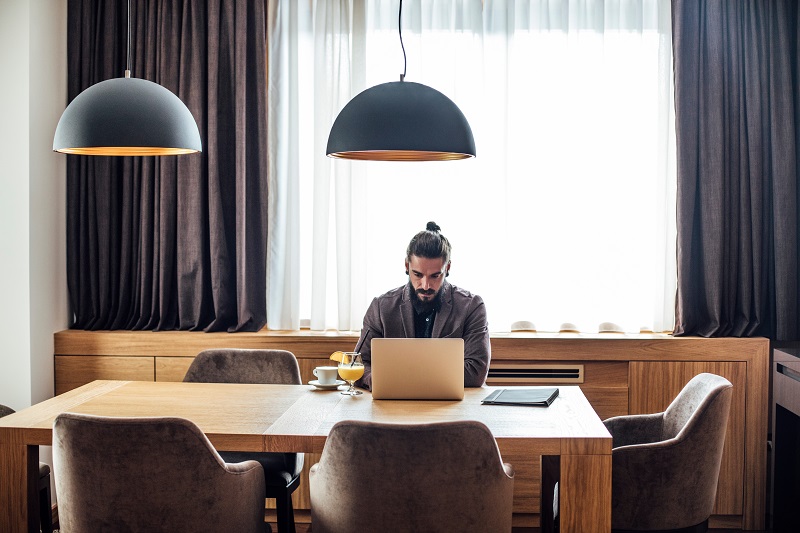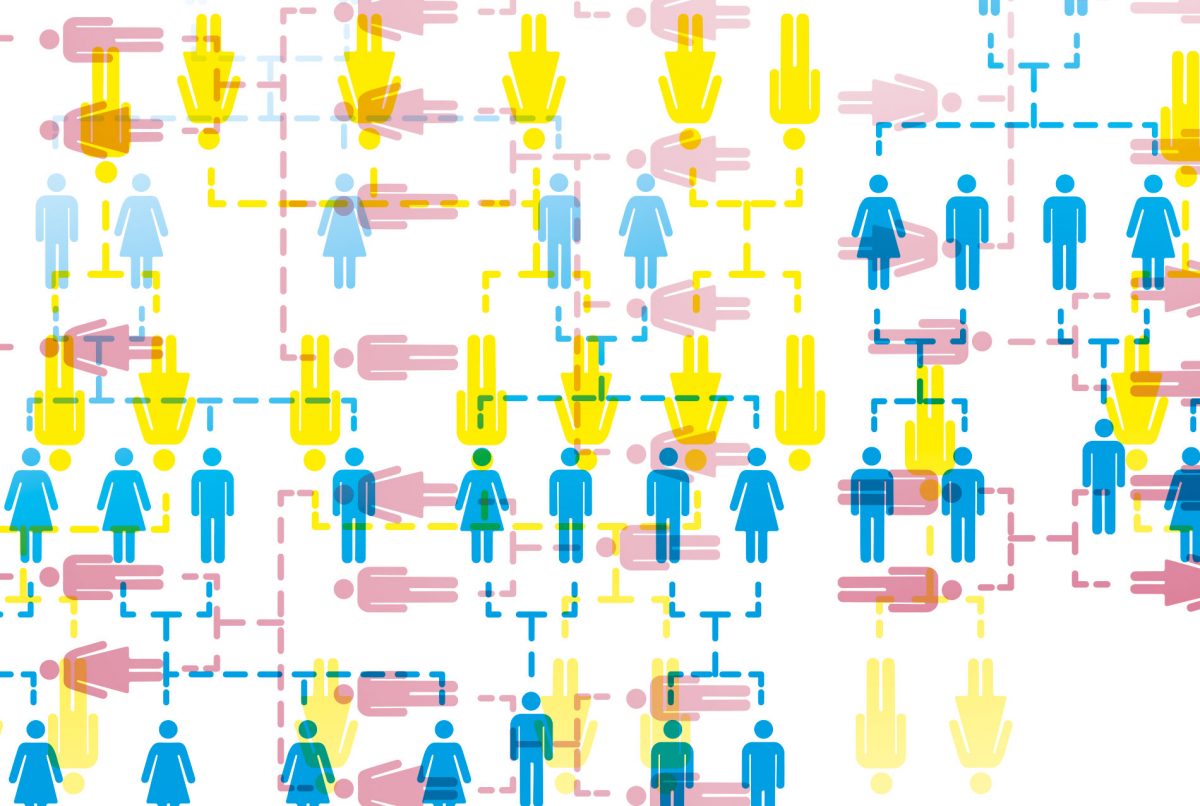However fit and healthy you feel, chances are that at some point you will have to go to the doctors in the Netherlands. If you register with a GP before you fall ill, you will save yourself a lot of hassle! Read on to learn how to find yourself a Dutch doctor, how to receive treatment from them after hours and what your visit will be like.
The Dutch doctor: 'Huisarts'
Here are a few facts about doctors in the Netherlands:
- The Dutch word for a family doctor, or a GP, is ‘huisarts’. This literally translates as ‘house doctor’. However, your doctor will not usually come to your house if you are sick. ‘Neighborhood doctor’ would better describe a huisarts, since Dutch people tend to go to a GP in their own neighborhood
- In order to have a consultation with your doctor, you must make an appointment with him or her
- In the Netherlands, doctors do make house calls in emergency situations. They might do this after-hours, or during specifically allotted times in their schedule
- Many doctors share an office, and take it in turns to cover after-hours and weekend appointments. For convenience, doctor’s offices are often located near, or even inside, hospitals
Finding a doctor in the Netherlands
You may have difficulty finding a GP at short notice in the Netherlands. Therefore, you should try to register with one as soon as possible, incase you become suddenly unwell.
The best place to start your search for a doctor is in your own neighborhood. Here are the steps you must take:
Steps to Finding a GP in NL
- Visit your ‘gemeentehuis’: your ‘city/town hall’, to see which doctors live nearby
- Pick up a ‘gemeentegids’ from the gemeentehuis. This is a booklet, issued by your municipality. It contains information on just about everything to do with the town or city you live in. It will contain a list of all your local doctors. You will also find useful information on schools, lawyers, health clubs, day care and churches
- Once you have selected a doctor, you should ask him or her for an initial meeting
- It is a good idea to use this time to discuss your needs and expectations with your GP. You can use this meeting to establish whether or not you are compatible with one another. Doctors in your country of origin may operate very differently to doctors in the Netherlands. So, by having this consultation before you get sick, you can avoid any unpleasant surprises
Doctor's visiting hours
How easy is it to see your doctor in the Netherlands? Here is what you need to know about visiting hours:
‘Walk-in’ Hours in NL
- Some GPs have walk-in consultation hours
- Walk-in hours will usually be early in the morning
- To attend a walk-in session, you should simply go to your GP’s office and await your turn with the other patients
Doctor’s Appointments in NL
Other doctors only see patients by appointment:
- To make an appointment with your doctor, you must call in, and arrange an appointment
- Unless the doctor has been called out on an emergency, you will probably not have to wait more than 15 minutes to see them when you arrive for your appointment
- It is important to note that, sometimes, you will only be able to make an appointment in the morning in the Netherlands
 Tip
Tip
Phone Consultations in NL
For simple questions, or to request a refill for your prescription, it might be more straightforward for you to use the ‘telefonische spreekuur’.
- This is a telephone consultation hour
- Most Dutch doctors have a consultation hour
- During this hour, you can call in and speak to your doctor, or his or her assistant
- A doctor’s assistant will have received special training, so do not worry about them being under-qualified
It is important to note that Dutch doctors are notoriously ‘no-nonsense’. This means that if you are concerned about your illness, or you would like some extra information about it, you need to ask them explicitly! They might not volunteer the information without being prompted.
Medical emergencies in NL
 Should you have an emergency and need the police, the fire department or an ambulance, the national number for all services in the Netherlands is: 112
Should you have an emergency and need the police, the fire department or an ambulance, the national number for all services in the Netherlands is: 112
Dutch medical specialists
What happens if you have a medical emergency that requires immediate first aid?
Different Hospitals, Different Services
- If you can, you should head straight to the hospital and go to the ‘SEH’department. SEH stands for Spoed-eisende Hulp, meaning ’emergency help’
- Some hospitals may be a little behind the times, and use the old name for their emergency room: the ‘EHBO’. This stands for Eerste Hulp bij Ongelukken, meaning: ‘First Aid’
Other Options

- Nowadays, some regional hospitals no longer offer first aid services. In an emergency, they expect you to visit your GP. In this situation, either your doctor will treat or send you to the closest hospital with the required facilities
- Alternatively, you can dial 112 . This is the emergency number for the Netherlands
- If you are unsure what to do, you can call your GP. If your doctor believes that you should be taken to hospital, he or she will call ahead on your behalf. Your GP will tell the hospital about your condition and make sure someone is ready to receive you when you arrive
If your Doctor is Away
What happens if you call your GP in an emergency, only to find that they are away?
- You will hear a taped message in Dutch, giving you the number of an on-duty doctor
- The message might also give you the number of the local emergency line: the ‘doktersdienst’. This translates as ‘doctor’s service’. The staff at the end of the line will ask you what your emergency is, and where you live
- They may be able to offer you advice and care over the phone themselves
- They can also give you the phone number of the nearest doctor on duty
The Regional Doctor’s Office
If you need to see a doctor outside of office hours, another option is to contact the ‘Regionale Huisartsenpost’. This is the ‘Regional Doctor’s Office’:
- Often, many GPs from a particular region join forces to cover evenings, nights and weekends
- Each of these regional offices has a single, central number you can call
- The phone will be answered by a doctor’s assistant, or a GP
- You will discuss your condition with them, and the two of you will determine whether you need to see a doctor. If you do, you can visit the Huisartsenpost. Or, if this is not possible, a doctor will visit you
Medical Specialists in NL
What happens if your GP decides that you would benefit from some specialist medical treatment? You can find more detailed information on this topic in our article on visiting a Dutch medical specialist. Here are few key tips on specialist treatment:
- If he or she deems it necessary, your doctor will give you a referral notice. This will contain information on the type of specialist you need to see, and information about the history of your ailment
- You will usually be referred to a specialist at your nearest hospital
- Most GPs are flexible, and will be open to hearing your opinion. So, if there is a type of specialist treatment you would particularly like to try, or a hospital you would rather go to, discuss this with them
Medication in the Netherlands
Dutch doctors have great confidence in your immune system. So, they are not liberal when it comes to prescribing medication. Of course, however, serious problems will be given serious attention. If your GP does decide that you need some medicine, he or she will issue you a prescription.
Our article on medication in the Netherlands can give you more information about this.
Checkups in the Netherlands
What’s the deal with checkups in the Netherlands?
- General medical check-ups are not, on the whole, carried out in the Netherlands
- There are no customary, annual tests on: blood pressure, cholesterol, or blood-sugar
You Need a Reason for a Checkup
- You are free to request these tests whenever you like
- However, you need to know exactly what you want and why. You may even have to argue your case and push to have the test
- If this does not sound appealing to you as an expat, you could have these tests carried out while you are visiting your home country
- You may be able to find international medical centers in some of the bigger cities in the Netherlands. These may offer tests and checkups
Payment for Dutch healthcare
There are two ways in which your Dutch insurance company can cover your medical bills. You can take out:
A ‘Natura’ Policy
a) Health care insurance ‘in kind’. This is called a ‘natura’ policy in the Netherlands. With this policy, your insurance company will pay your medical bills directly
A ‘Restitutie’ Policy
b) Health care insurance based on ‘restitution’. This is called a ‘restitutie’ policy in Dutch. It means that you will pay your medical bill yourself, and then ask your insurer to reimburse you
The Dutch Deductible
- Be aware that Dutch insurance policies always include an additional amount, which you will need to pay yourself
- This amount must be paid on top of your monthly or yearly premium (a deductible, called ‘eigen risico’, or ‘own risk’)
- The specific amount changes every year.
Paying for Prescriptions
- Prescription drugs are filled at an ‘apotheek‘ (pharmacy)
- Pharmacies computerize your prescriptions, and keep a close watch on the drugs you are taking, in order to avoid drug interaction
- Typically, a pharmacy will bill your insurance company directly for the costs of prescription medicine
Other healthcare services in the Netherlands
You might develop a condition for which you need to see:
- A dentist
- An eye doctor
- A physical therapist
If this is the case, or if you need help with a physical disability or advice on your sexual health, read our article on other medical issues in the Netherlands. You can ask your GP for recommendations too.
 Recommended reading
Recommended reading
THE ACCESS GUIDE TO HEALTH CARE IN THE NETHERLANDS
This publication covers a wide range of health topics from:
- Birth to death
- Insurance to legal rights
- Home care to hospitals
- Special services to social services

How Expats in the Netherlands Are D ...
The Netherlands has long been known for its financial savviness, and that mindset tends to ...

Understanding Mortgage Calculators ...
Buying a home in the Netherlands involves careful financial planning, especially for expats navigating the ...

Mortgage Interest Rates in 2025: Wh ...
As 2025 unfolds, expats navigating the Dutch housing market find themselves in a shifting financial ...

Be prepared for the Dutch housing m ...
Buying a house in the Netherlands may work a bit differently to what you are ...

Mortgage Interest Rates in the Neth ...
Mortgage interest rates can have a significant impact on homebuyers and homeowners. The average interest ...

Dutch 30%-ruling Tax Facility
The 30%-ruling is a tax advantage, created for employees who are posted or recruited ...

Obtaining a Mortgage as an Expat in ...
Obtaining a mortgage as an expat in the Netherlands can be a complex process, as ...

Banking made easy with ABN AMRO
When preparing to live in another country, you are instantly faced with the hurdles of ...

Four Legal Differences You Need to ...
Relocating to any country is a big step. Aside from all the cultural differences and ...

Patchwork Family
‘Patchwork families’ are families made up of parents and children, whereby one – or both – of ...
 Useful links
Useful links